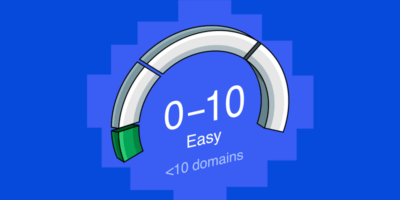Personal Finance Tips for Gen Z From Millennials
As Gen Zers are entering the workforce and beginning their financial journey, they can benefit from the wisdom and experience.
12 Jan 2024

As Gen Zers are entering the workforce and beginning their financial journey, they can benefit from the wisdom and experience of the millennials who have gone through the trials and tribulations of managing personal finances. Here are some essential personal finance tips for Gen Z from millennials that can help them achieve financial success:
1. Create a Budget and Stick to It
One of the most crucial parts of personal finance is creating a budget. Knowing where your money is going and how much you're spending can help you make smarter decisions and avoid falling into credit card debt. Track your income, expenses, and savings, and make adjustments as needed to ensure you're living within your means.
Creating a budget involves listing your sources of income and all your monthly expenses, from rent and utilities to groceries and entertainment. Once you have a clear picture of your financial situation, set spending limits for each category to prevent overspending. This process will help you prioritize your spending and ensure that you have enough money to cover your essential expenses.
To make budgeting more manageable, consider using budgeting apps or software that can help you track your spending and savings automatically. These tools can provide real-time updates on your financial status, making it easier for you to stay on top of your finances and make adjustments when necessary.
It's also essential to review your budget regularly, at least once a month, to ensure that you're sticking to your spending limits and making progress toward your financial goals. If you find that you're consistently overspending in certain categories, consider cutting back on non-essential expenses or finding ways to increase your income to balance your budget.
Sticking to a budget can be challenging, especially when unexpected expenses arise. To avoid going into debt, make sure to set aside some money each month for an emergency fund. This fund can act as a financial safety net in case of job loss, medical emergencies, or other unforeseen events.
By creating and sticking to a budget, you'll develop healthy financial habits that will serve you well throughout your life. Not only will you avoid credit card debt, but you'll also be better prepared to handle financial emergencies and achieve your long-term financial goals.
2. Start Saving Early
The earlier you start saving, the better off you'll be in the long run. Open a savings account and commit to saving a portion of your income every month. Even small amounts can make a significant difference over time, thanks to the power of compound interest. Set goals for short-term and long-term savings, such as an emergency fund, a down payment for a house, or retirement.
Starting to save early in life offers several advantages. First, it allows you to take advantage of the power of compound interest, which is the interest earned on both the principal amount and any accumulated interest. The more time your money has to grow, the more substantial your savings will become.
Second, starting to save early helps you develop good financial habits that will serve you well throughout your life. By prioritizing savings, you'll be less likely to fall into debt and more likely to achieve your financial goals.
To begin saving, consider setting up automatic transfers from your checking account to a designated savings account. This strategy ensures that you're consistently saving money and eliminates the temptation to spend the money instead.
It's also essential to have a clear savings goal in mind. Whether you're saving for an emergency fund, a down payment on a house, or your retirement, having a specific target can help you stay motivated and focused on your savings journey.
3. Be Smart About Credit Cards
Credit cards can be a helpful financial tool when used responsibly, but they can also lead to high interest credit card debt if not managed properly. To make the most of your credit cards and avoid falling into debt, follow these tips:
Only charge what you can afford to pay off each month: Using your credit card for purchases you can't pay off in full can quickly lead to mounting debt and costly interest charges. Stick to a budget and only use your credit card for expenses you can comfortably cover with your income.
Pay your balance in full and on time: To avoid interest charges and maintain a good credit score, always pay your credit card balance in full and on time. Set up automatic payments or reminders to ensure you never miss a due date.
Choose the right card for your needs: With so many credit cards available, it's essential to select one that aligns with your spending habits and financial goals. Look for cards with low interest rates, no annual fees, and rewards or cashback programs that match your spending patterns.
Keep your credit utilization low: Your credit utilization ratio, or the percentage of your available credit that you're using, plays a significant role in your credit score. Aim to keep this ratio below 30% to maintain a healthy credit score and avoid potential negative impacts on your borrowing ability.
By using credit cards responsibly, you can build a strong credit history, enjoy the convenience and rewards they offer, and avoid the pitfalls of high interest credit card debt.
4. Invest in Your Future
Investing is an essential part of personal finance and can help you grow your wealth over time. Start by learning the basics of the stock market, and consider seeking advice from a financial planner or other professionals to help you develop a long-term investment strategy.
Investing in a diversified portfolio, including stocks, bonds, and mutual funds, can provide you with the potential for growth and help protect you from market fluctuations. Additionally, consider contributing to a retirement account, such as a 401(k) or IRA, to take advantage of tax benefits and employer matching contributions.
As a young investor, you have the advantage of time on your side. The more time you have to invest, the more opportunities you have to grow your wealth through compound interest and market growth. Start investing early, even if it's only a small amount, and gradually increase your contributions as your income grows.
5. Network and Seek Opportunities for Growth
Networking and seeking opportunities for personal and professional growth can have a significant impact on your financial success. Attend networking events, join professional organizations, and engage with others in your industry to build connections and expand your knowledge.
These networking opportunities can lead to job offers, partnerships, and other avenues for financial growth. Additionally, investing in your personal development, such as pursuing further education or certifications, can increase your earning potential and make you more marketable in the job market.
By following these personal finance tips for Gen Z from millennials, you'll be better equipped to navigate the complexities of the financial world and achieve long-term financial success. Start by creating a budget, saving early, using credit cards responsibly, investing in your future, and seeking opportunities for personal and professional growth. With dedication and perseverance, you can secure a bright financial future.
How Gen Z and Millennials Differ Financially?
Gen Z and Millennials are two distinct generations, each with their unique financial habits and challenges. Understanding these differences is crucial in addressing their financial needs and providing relevant advice.
Debt Management: One key difference between the two generations is their approach to debt management. Millennials, having experienced the aftermath of the Great Recession, are more likely to have higher student loan debts and be more cautious about taking on additional debt. In contrast, Gen Z has seen the consequences of excessive debt and tends to be more focused on minimizing their debt burden from the start.
Savings and Investment: Both generations prioritize saving, but their investment strategies differ. Millennials are generally more conservative, leaning towards traditional investments like 401(k)s, IRAs, and index funds. Gen Z, on the other hand, has embraced digital platforms and alternative investments, such as cryptocurrencies and robo-advisors.
Financial Literacy: Gen Z appears to be more financially literate than Millennials. Growing up during the recession and witnessing the financial struggles of their parents, Gen Z is eager to learn about personal finance and avoid making the same mistakes.
What are Gen Z's Financial Habits?
Gen Z, the youngest generation entering the workforce, has unique financial habits that set them apart from previous generations. Here are some key characteristics of Gen Z's financial habits:
Emphasis on Financial Education: Gen Z is keen on increasing their financial literacy, often seeking information and advice from various sources, including family, friends, online resources, and financial professionals.
Early Saving: Recognizing the importance of long-term financial planning, Gen Z starts saving earlier than previous generations. They prioritize building an emergency fund and saving for future goals such as education, homeownership, or starting a business.
Tech-savvy: Gen Z has grown up with technology and is comfortable using digital tools to manage their finances. They frequently use mobile apps and online platforms for banking, investing, and budgeting.
Debt-averse: Gen Z is cautious about taking on debt, having witnessed the consequences of excessive borrowing during the recession. They focus on minimizing student loans and are more likely to choose cost-effective education options like community colleges, trade schools, or online courses.
Socially Conscious Investing: Gen Z is more likely to consider the social and environmental impact of their investments. They prefer to invest in companies that align with their values, supporting businesses with sustainable practices and a commitment to social responsibility.
Understanding Gen Z's financial habits is essential for financial professionals and businesses looking to cater to this new generation's needs. As Gen Z continues to enter the workforce and grow their wealth, their financial habits will have a significant impact on the financial landscape.







